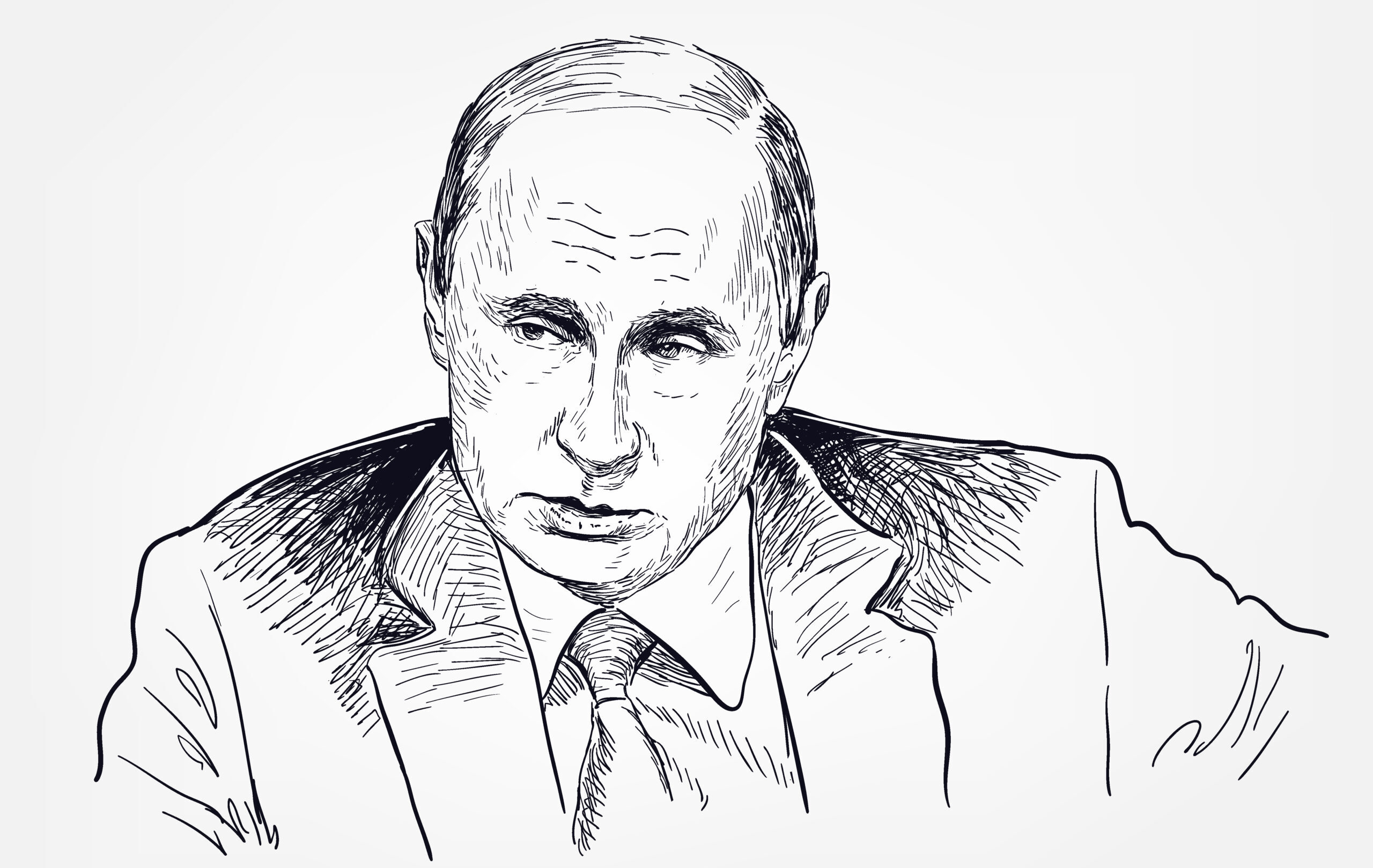If Russia Wins
Ukraine should be told, not asked, what the terms of a peace settlement will be.

Several decades ago, during the Clinton administration, I participated in a joint State Department/Marine Corps conference at Camp Pendleton. The subject was America’s future foreign policy. The six working groups were each chaired by a typical State Department weenie who had drunk deep of the waters of Babylon. The world was theirs for remaking in the name of “democracy” and “human rights,” the latter mostly of the feminist and gay varieties. By the end of the first day, the Marines were ready to puke.
So at the next morning’s plenary session, I announced a new group for “those who may have some small reservations about our ability to transform every flea-bitten, fly-blown Third World hellhole into Switzerland.” As the Marines grinned, the State Department apparatchiks audibly gasped. How could it happen that they were to face dissent? In their world, such a thing was inconceivable. Illustrating why, the Commandant of the Royal Marines came up to me and, after looking over both shoulders, said, “I should love to join your group, but I’m afraid it is not worth my career.”
Of late, the same Laputan foreign policy establishment, a.k.a. the blob, has rallied around the idea that Ukraine must win its war with Russia. President Biden said so in Poland. Republican Senate leader Mitch McConnell declared Ukrainian victory a “core interest” of the United States. Why? Is Cleveland unable to make enough pierogies to supply the rest of the country? Has the EPA announced that as of 2025 all cars must run on borscht? Where do all these commitments to a Ukrainian victory leave us if Russia wins?
As Cato’s Ted Galen Carpenter argued in the March/April issue of The American Conservative, that is not an unlikely outcome. Despite the poor performance of its army, Russia is simply a larger and stronger country. In a war of attrition, Ukraine will run out of manpower before Russia does. Carpenter quoted two establishment figures, Robert M. Gates and Condoleezza Rice, as saying in the Washington Post, “Although Ukraine’s response to the invasion has been heroic and its military has performed brilliantly, the country’s economy is in a shambles, millions of its people have fled, its infrastructure is being destroyed, and much of its mineral wealth, industrial capacity and considerable agricultural land are under Russian control.”
No military historian can consider the war in Ukraine and not hear echoes of Germany’s situation on the Eastern Front in World War II. Most Ukrainian units perform much better than their Russian counterparts, just as the Germans did. Now, Western supplied Ukrainian tanks and other equipment are qualitatively superior to what the Russians have; then, one German Panther or Tiger tank was more capable than a single Russian T-34. But Germany did not have the quantities of people or tanks to stem an ever-swelling Russian tide. While the Wehrmacht was superior in campaigns of maneuver, at least up to 1944, Germany could not win a war of attrition against the Soviet Union.
Subscribe Today
Get daily emails in your inbox
A war of attrition is what Ukraine, like Germany, is being forced into. If Ukraine’s much-heralded spring offensive does not force Russia into another campaign of maneuver, both the U.S. and Europe are likely to find themselves on the losing side. Then what?
Russia’s victory is unlikely to be total, so it becomes a question of terms. Were the American and European foreign policy establishments in the hands of realists, terms are not difficult to envision. Realists start with the question, “What would Bismarck do?” I can make a good guess. He would call a conference of the great powers, today the U.S., China, and Russia, perhaps by courtesy Britain and France. He would lay out terms no one would be happy with but everyone could grudgingly swallow. Russia gets Crimea, the Donbas, and a land corridor linking the two, but she has to pay Ukraine for them, say, $1.5 trillion, money that would go toward rebuilding Ukraine’s cities. Until the money is paid, Russia would not get title to the territories nor a complete lifting of sanctions. Russia would yield Russian occupied East Prussia to Ukraine, giving Ukraine two seas, Black and Baltic, through which she could export her grain. The terms would be decided by the Great Powers, with lesser powers, including Ukraine, simply informed of what was going to happen. Even after a Russian victory, no Ukrainian government could agree to terms under which Ukraine would lose territory. If it is told, not asked, it is off the political hook.
But as we all know, neither Washington nor NATO has realists in charge. The neo-Wilsonians who make up the blob can never accept any terms Ukraine rejects—a point they have made explicit. So the outcome is likely to be an unstable armistice where Russia controls whatever it manages to take and the conflict threatens to erupt again at any time, a central European Vesuvius with western Europe playing Pompeii.